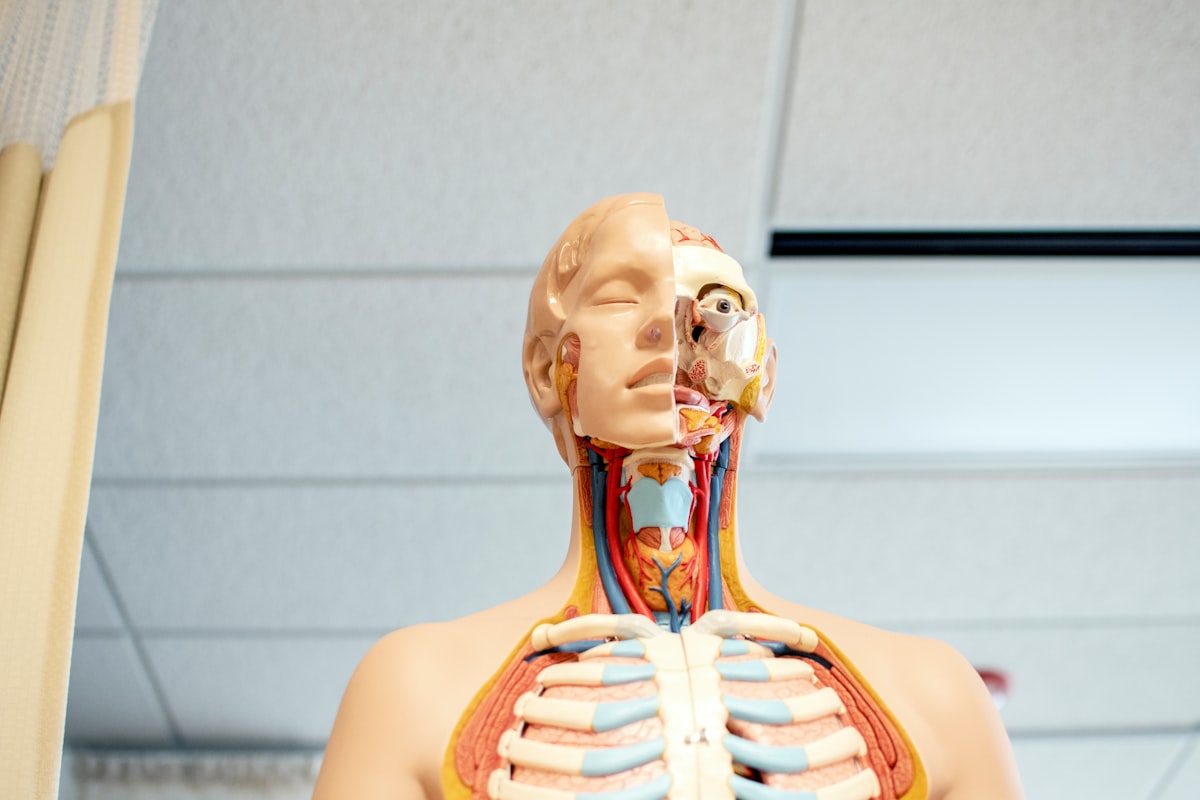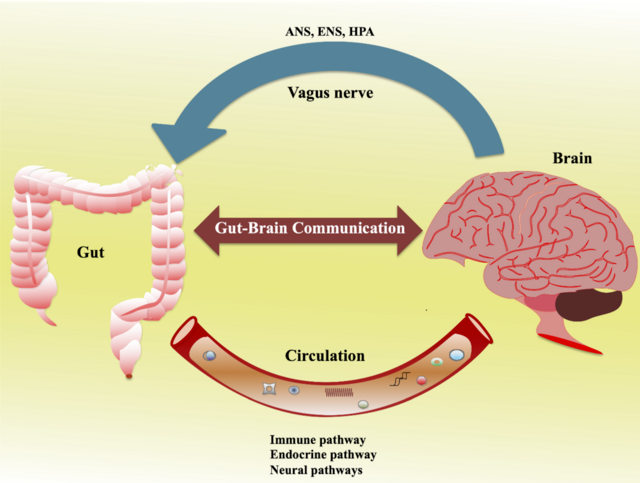Discovering The Second Brain - The Significance Of The Gut Microbiome

The brain is recognized not only as the most complex organ but also the most important one in the human body. One of the major reasons why the brain is regarded as our most vital organ is due to its unique ability to influence and interpret emotions and communicate with the rest of our organism through electrochemical processes. While it is certainly true that the brain is unique in many of its abilities, scientists have recently discovered that the brain is not the only organ capable of controlling our mental well-being. Research has found that there is yet another organ system responsible for a large portion of both our physical and mental well-being, namely the gut.
Our advancing knowledge of the enteric nervous system and the gut microbiome has undoubtedly been a major contribution to our understanding of human physiology and psychology. The gut microbiome, which influences not only the gut but the entirety of our organism, has proven itself to be so significant that it has been labelled a supporting organ, occasionally regarded as our second brain.
Indeed, the gut and the brain are two separate entities, however, they have a substantially closer connection than we may realise. Due to our lack of knowledge, we often fail to consider the importance of how we treat our gut and the fascinating community that it houses. Although the human microbiota (the set of organisms inhabiting and interacting with the human body) is invincible to the naked eye, it is far from insignificant. Our developing understanding of the gut has allowed us to discover that there is much more to the term “gut feeling” than intuition and ‘spiritual senses’. It has introduced us to the incredible world that exists within us. While most people would agree that the saying “follow your heart” is more poetic than “follow your gut feeling”, poetry aside, the latter may be a wiser option.
The Gut-Brain Connection
The gut refers to the gastrointestinal tract (GI), a large organ structure that comprises a significant section of the human digestive system. It is composed of the esophagus, the stomach, and the intestines. The main functions of the GI are to digest and absorb ingested nutrients and excrete waste. Additionally, the gut is highly sensitive to emotions. It is very common to experience physical sensations or ‘consequences’ in the stomach area as a result of emotional experiences.
Nervosity, sadness, excitement, and disappointment may all cause you to experience more or less pleasant “gut sensations”, ranging from blissful butterflies to stomach-turning nausea. Not only does a person's emotional state manifest in the physical functions and reactions of the gut, but the influence is mutual, which implies that the gut curiously influences our emotional state in turn. The gut contains approximately 500 million neurons, and this complex network has been proven to have a significant impact on our mental health. To understand how and why we experience these sensations we must take a closer look at the brain-gut axis.
The connection between the gut and the brain, known as the brain-gut axis, is a highly advanced communication system, embracing numerous components including neural pathways, neurotransmitters, a large part of the immune system, and last but certainly not least the gut microbiota. The neural pathways within the gut-brain connection refer to interactions between the central- and enteric nervous systems. The enteric nervous system (ENS) is the largest and most complex unit of the pheriåheral nervous system. It includes a large number of neural circuits responsible for motor functions, local blood flow, the release of gut hormones, and immunological defence. The central nervous system (CSN) consists of the brain and the spinal cord, and its responsibilities include receiving, processing, and responding to sensory information. The ENS is capable of operating autonomously without input from the central nervous system, however, the ENS communicates with the CNS constantly. These networks are connected via the vagus nerve where signals can be sent bi-directionally.

Neurotransmitters are endogenous chemicals that allow for neuron communication throughout the body. Neurotransmitters produced by the brain, such as dopamine, serotonin, and acetylcholine are responsible for controlling our feelings and emotions. Interestingly, a significant amount of these neurotransmitters are produced by the gut. For instance, a staggering 95% of the body’s total serotonin production is carried out by the gut. Furthermore, the gut plays a vital role in the human immune system. Its inner lining functions as a protective barrier, and the gut immune cells communicate with the brain, which potentially affects mood and behaviour. While each of these components is fascinating, the gut microbiome is arguably the most intriguing part of the brain-gut connection.
The Gut Microbiome
The term biome describes a distinct ecosystem that is characterised by its environment and its inhabitants, thus, a microbiome refers to a community of microbes, such as bacteria, fungi, and viruses, usually found living together in a particular environment. One such biome is found within our GI, known as the gut microbiome, inhabited by trillions of microscopic organisms. The two terms microbiome and microbiota are often used interchangeably, however, there is a subtle difference between them.
The gut microbiome describes the collective genome of all the organisms within a particular environment, whereas microbiota is used when referring to the microorganisms found in the environment in question. The gut microbiome is a complex, and extraordinarily diverse community of microbes, and despite being invisible to the naked eye, the gut microbiome weighs approximately 2kg and is collectively larger than our brain. This community is often referred to as a supporting organ as a result of its immense impact on our mental and physical well-being, including our metabolism, physiology, nutrition, and immune function.

The gut has been investigated for centuries, and although the significance of the gut was confirmed and discovered to a certain extent already in the 1800s, it wasn’t until recent decades that scientists revealed that the gut essentially controls as much of our physical and mental function as the brain does. It is believed that the gut microbiota could potentially be the key link between modern disease epidemics, such as obesity, cardiovascular disease, and even mental disorders, such as anxiety and depression.
The fact that we have been able to understand even just a fraction of how our physiological mechanism affects our psychological state is remarkable, as it allows us to discover new, concrete approaches to mental health. Even though we are only looking at a small segment of the solution, the increasing issue of depression and anxiety becomes infinitely more approachable when we have some kind of physical ‘stepping ground’.
The Importance Of Gut Health
With an understanding of how the gut communicates with the brain, we can begin to comprehend the relationship between the state of an individual’s gut microbiome and psychological condition. Under the right circumstances, the gut microbiome serves as an incredible internal pharmacy, producing vital chemicals that are essential to our immune system, enabling our body to fight off disease. As previously mentioned, it also produces neurotransmitters such as GABA, dopamine, norepinephrine, and serotonin, and these, amongst other chemicals, are essentially what regulate mood and psychological responses in the brain.
In addition, the gut microbiome affects the brain in the sense that it controls the messages that are sent from the gut via the vagus nerve. Consequently, an imbalance in the gut microbiota is very likely to affect a person's mental health. Evidence suggests that the gut microbiota extensively and profoundly influences the gut-brain relationship, referring to mental state, emotional regulation, and neuromuscular function. Research continues to demonstrate and further explain how the microbiota, both directly and indirectly, affects the emotional and cognitive centres of the brain.
Several mood disorders, such as anxiety, depression, and autism spectrum disorders have well-established links to disruptions within the GI, whereas GI diseases, such as irritable bowel syndrome, often involve psychological comorbidities -the coexistence of two diagnoses- also associated with alteration of the gut microbiome. Although the field is still evolving, it is safe to say that a healthy gut is linked to improved mental health, and vice versa. While many factors can improve an individual’s gut health, diet is often regarded as one of the main remedies. The extent to which our health is dependent not only on how we nourish ourselves but how we feed the living organisms inside of us is fascinating, to say the least.




